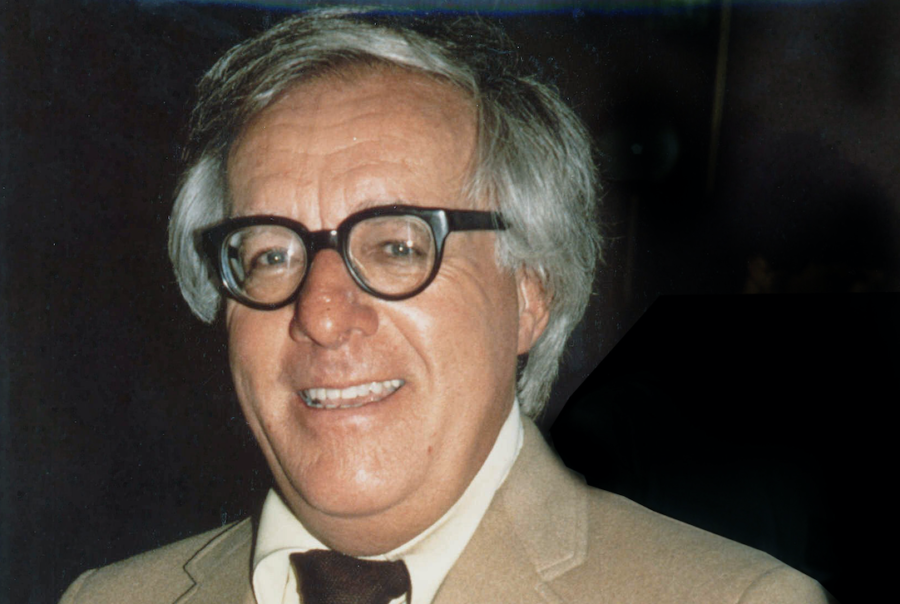

Picture by Alan Gentle, by way of Wikimedia Commons
It appears like a 3rd grade math problem: “If Ray Bradbury wrote the primary draft of Fahrenheit 451 (1953) on a coin-operated kindauthor that charged 10 cents for each 30 minutes, and he spent a complete of $9.80, what number of hours did it take Ray to write down his story?” (In case you’re doing the maths, that’s nice, however you may be within the mistaken class.)
Bradbury’s composition of Fahrenheit 451 demonstrates two of the professionallific author’s most insistent calls for amongst his many practical nuggets of writing recommendation: 1. All the time write, on a regular basis; a brief story per week, as he informed a author’s symposium in 2001. And, as he informed the identical group, 2. “Dwell within the library! Dwell within the library, for Christ’s sake. Don’t stay in your godrattling computer and the interweb and all that crap.”
Granted, the library—and the college, and the workplace, and all the remainder of it—now lives within the “godrattling computer” for many people. However Bradbury’s elaboration of why he finished up within the library within the early Fifties, specifically the bottomment of UCLA’s Powell Library, can be relatcapable of any working parent. As he wrote in 1982, he discovered himself “twice driven; by children to depart at dwelling, and by a sortauthor timing system…. Time was certainly money.”
This was a different time, so that you’ll want to regulate the currency for twenty first century inflation. Additionally, Bradbury had the 50s’ writer-husband’s prerogative to beg off the kidcare. As he explains:
In all of the years from 1941 to that point, I had accomplished most of my typing within the family garages… behind the tract home the place my spouse, Marguerite, and I raised our family. I used to be driven out of the storage by my loving children, who insisted on coming round to the window and singing and faucetping on the panes.
Devoted father Bradbury “had to decide on between finishing a story or playing with the ladies. I selected to play, after all, which endangered the family earnings. An workplace needed to be discovered. We couldn’t afford one.” Bradbury didn’t write all of Fahrenheit 451 within the library basement. “He finished up with the novella version,” notes UCLA Magazineazine, “originally known as The Fireplaceman and didn’t come again to it till a publishing company requested if he may add extra to the story.”
The pace at which Bradbury wrote, each to avoid wasting money and to get dwelling to his children, didn’t trigger him to get caremuch less. He regarded again on the e book 22 years later with satisfaction. “I’ve modified not one thought or phrase,” wrote Bradbury in his introduction. He didn’t discover till later that he had named essential characters after a paper company, Montag, and pencil company, Faber.
Bradbury informed the magazineazine in 2002, “It was a passionate and exciting time for me. Imagine what it was wish to be writing a e book about e book burning and doing it in a library the place the passions of all these authors, living and lifeless, sursphericaled me.” When it got here to search outing the e book’s title, however, supposedly the temperature at which books burn, not solely did the library fail him, however so too did the college’s chemistry department. To be taught the reply, and finish the e book, Bradbury remainingly needed to name the fireplace department.
Related Content:
When François Truffaut Made a Movie Adaptation of Ray Bradbury’s Fahrenheit 451 (1966)
Ray Bradbury Offers 12 Items of Writing Recommendation to Younger Authors (2001)
Why Ought to We Learn Ray Bradbury’s Fahrenheit 451? A New TED-Ed Animation Explains
Josh Jones is a author and musician based mostly in Durham, NC. Follow him at @jdmagness.
